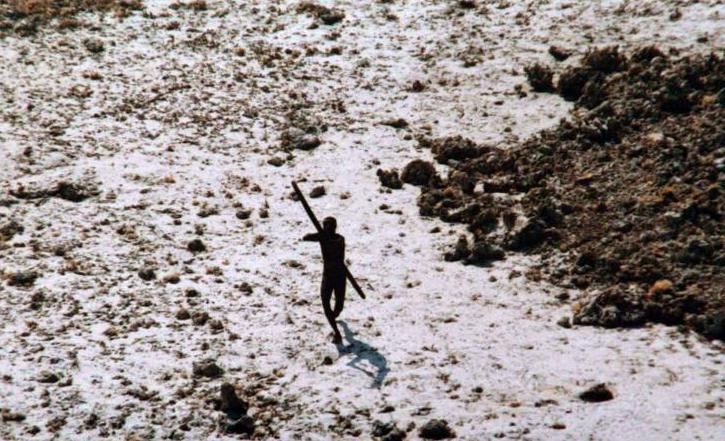An American tourist set off alone last month on an inflatable boat for the remote island of North Sentinel in the Indian Ocean. He had packed a Diet Coke and a coconut as an offering for the highly isolated tribe that lives there, and he had brought along a GoPro camera in hopes of filming the encounter, the Indian police said.
Guided by his GPS navigation, the man, Mykhailo Viktorovych Polyakov, 24, reached the northeastern shore of the island at 10 a.m. on March 29, according to police. He scanned the land with binoculars, but saw no one. So he climbed ashore, left the Diet Coke and the coconut there, took sand samples, and recorded a video, police said.
Polyakov was arrested March 31 when he returned to Port Blair, the capital of the Andaman and Nicobar Islands, an archipelago 800 miles east of India’s mainland, authorities said.
Few outsiders have been to the island of North Sentinel, which is a territory of India and is illegal to visit. Indian government regulations prohibit any outsider interaction with its isolated tribe, whose members hunt with bow and arrow and have killed intruders for stepping onto their shore.
In 2018, an American missionary, John Allen Chau, set off for the island with a Bible. He was shot with bows and arrows by tribesmen when he got onshore, Indian authorities later said. Fishermen who helped take Chau to North Sentinel told police they had seen tribesmen dragging his body on the beach.
In 2006, the Sentinelese killed two fishermen who had accidentally drifted on shore.
Polyakov was not deterred. He planned his journey “meticulously,’’ police said, studying sea conditions, tides, and accessibility from Khurmadera Beach, located on Andaman island.
Even after he pushed back from North Sentinel island, Polyakov tried to attract the attention of the Sentinelese people by blowing a whistle from his boat, police said.
He was accused of attempting to “interact with the Sentinelese tribe,’’ police in Andaman said in a statement. Polyakov is being held on charges that include violating a law protecting aboriginal tribes and is scheduled to appear in court April 17. The charges carry a possible sentence of up to five years in prison and a fine.
“His actions posed a serious threat to the safety and well-being of the Sentinelese people, whose contact with outsiders is strictly prohibited by law to protect their Indigenous way of life,’’ the statement said.
Police said that during their questioning of Polyakov, he disclosed he was drawn to the island out of a “passion for adventure and his desire to undertake extreme challenges.’’ Officials added that his GoPro footage suggested entry into the island, and that he used GPS navigation throughout his voyage.
“He was particularly fascinated by the mystique of the Sentinelese people,’’ police said, adding that authorities had extracted footage from his camera.
A State Department spokesperson said that the department was “aware of reports of the detention of a US citizen in India’’ but had no further comment because of privacy issues.
Polyakov’s family members could not be reached.
Polyakov has recorded his travel exploits on his YouTube channel, which includes videos of him in what he described as “Taliban-controlled Afghanistan,’’ some of which involve posing with and firing weapons.
Police said he had made previous trips to the remote region. In October, hotel staff stopped his attempt to go to North Sentinel Island using an inflatable kayak, police said. In January, he reached Baratang Island, in the archipelago, and “illegally videographed’’ another tribe, the Jarawa, police said.
Survival International, a group that protects rights of Indigenous tribal peoples around the world, said that Polyakov’s attempted contact with the tribal people of North Sentinel was “reckless and idiotic.’’
“This person’s actions not only endangered his own life, they put the lives of the entire Sentinelese tribe at risk,’’ the group’s director, Caroline Pearce, said in a statement. “It’s very well known by now that uncontacted peoples have no immunity to common outside diseases like flu or measles, which could completely wipe them out.’’

